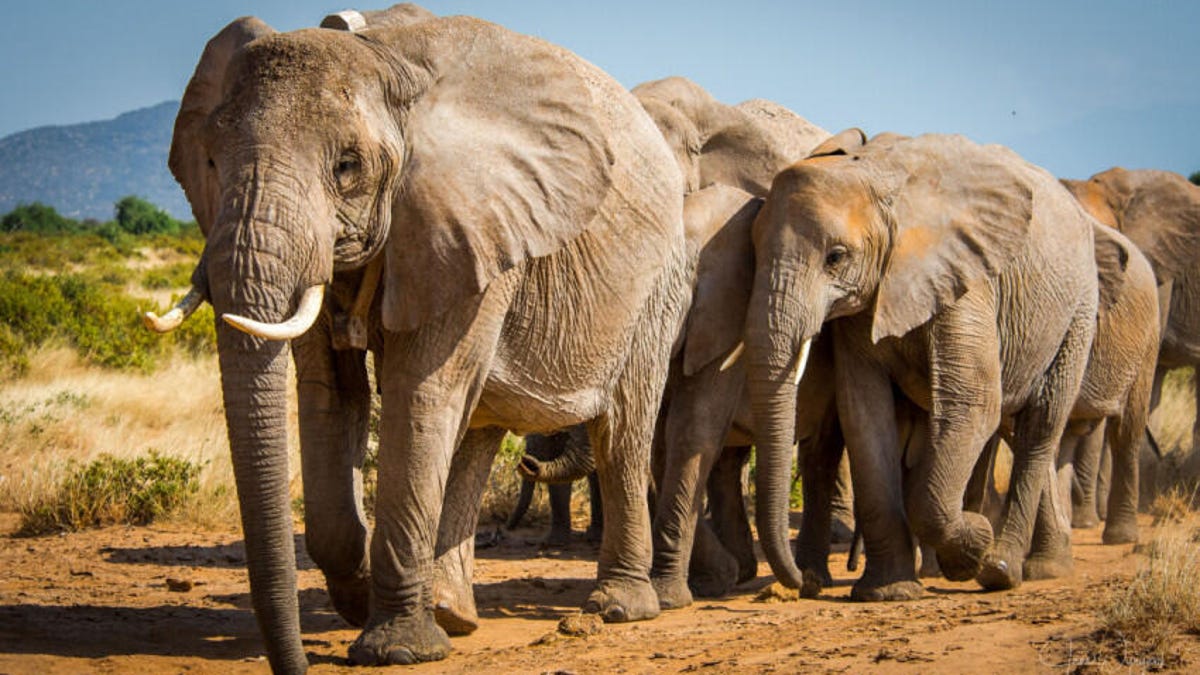2 African elephant species now listed as endangered, 1 critically
The Red List of Threatened Species, put together by an important conservation group, delivers dire news about Africa's elephant populations.
African elephants are among the largest land animals on Earth, and they're also now among the most threatened species on the planet. On Thursday, the International Union for Conservation of Nature said it's listed the African forest elephant (Loxodonta cyclotis) as critically endangered and the African savanna elephant (Loxodonta africana) as endangered.
The elephants had previously been counted together as a single group and were listed as vulnerable rather than endangered on the IUCN's Red List of Threatened Species, an inventory that classifies species based on conservation status. A new understanding of the elephants' genetics led to the separate listing of the forest and savanna elephants.
The elephants are threatened by radical population declines connected with poaching and human-caused habitat loss.
A 2016 report estimated the combined species numbers for African elephants at around 415,000. "The number of African forest elephants fell by more than 86% over a period of 31 years, while the population of African savanna elephants decreased by at least 60% over the last 50 years, according to the assessments," IUCN said in a statement.
The Red List covers 134,425 species, of which 37,480 are threatened with extinction.
The endangered classifications for the African elephants is disheartening, but the IUCN also highlighted how anti-poaching efforts and land-use planning measures have seen some success and could be key to long-term conservation efforts.
"Africa's elephants play key roles in ecosystems, economies and in our collective imagination all over the world," said IUCN Director General Bruno Oberle. "Today's new IUCN Red List assessments of both African elephant species underline the persistent pressures faced by these iconic animals."


